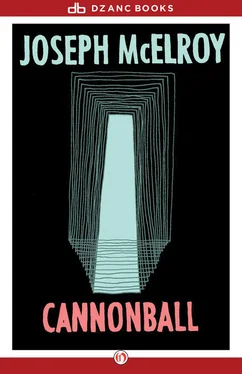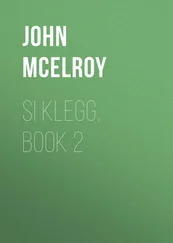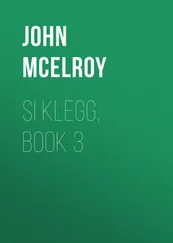Joseph McElroy - Cannonball
Здесь есть возможность читать онлайн «Joseph McElroy - Cannonball» весь текст электронной книги совершенно бесплатно (целиком полную версию без сокращений). В некоторых случаях можно слушать аудио, скачать через торрент в формате fb2 и присутствует краткое содержание. Год выпуска: 2013, Издательство: Dzanc Books, Жанр: Современная проза, на английском языке. Описание произведения, (предисловие) а так же отзывы посетителей доступны на портале библиотеки ЛибКат.
- Название:Cannonball
- Автор:
- Издательство:Dzanc Books
- Жанр:
- Год:2013
- ISBN:нет данных
- Рейтинг книги:5 / 5. Голосов: 1
-
Избранное:Добавить в избранное
- Отзывы:
-
Ваша оценка:
- 100
- 1
- 2
- 3
- 4
- 5
Cannonball: краткое содержание, описание и аннотация
Предлагаем к чтению аннотацию, описание, краткое содержание или предисловие (зависит от того, что написал сам автор книги «Cannonball»). Если вы не нашли необходимую информацию о книге — напишите в комментариях, мы постараемся отыскать её.
continues in McElroy's tradition of intricately woven story lines and extreme care regarding the placement of each and every word. A novel where the sentences matter as much as the overall story.
Cannonball — читать онлайн бесплатно полную книгу (весь текст) целиком
Ниже представлен текст книги, разбитый по страницам. Система сохранения места последней прочитанной страницы, позволяет с удобством читать онлайн бесплатно книгу «Cannonball», без необходимости каждый раз заново искать на чём Вы остановились. Поставьте закладку, и сможете в любой момент перейти на страницу, на которой закончили чтение.
Интервал:
Закладка:
It was this I spoke to Umo about when I happened to see him. For he went away and came back you sometimes thought just to start these rumors that few checked on, like news in the newspaper or things you did in place of others. He had been cooped up in a juvenile home in Broadview for a few days, it was said; or he ran errands for a bail bondsman in Chula Vista for three dollars an hour on a good day and then for a sound studio in La Jolla — a Russian who worked there (no, Ukrainian) putting together a music tape for a superintendent of schools’ campaign for Assemblyman nomination but Umo said there was a big plan for international recording — even though they found out he didn’t have working papers yet rather than fire him as an illegal the Russian saw they could make this kid do pretty well anything. Umo was a supplier in ugly sporting activities in Baja on the Gulf Coast side, my brother heard, some said with his strength an actual participant even at his age; but the rumors like reassuring gossip had a dimension along which they seemed to gather toward a good decision you will make. Though my mother seemed unforgiving when she volunteered that I had “helped” my father even if he was too shy to say so with “all this new business”—that is, that I might thank him for his unexpressed acknowledgment of my help with…what? — his trips, his Sacramento speechwriter contact — news to me. You go your way, however involved you might be with these others — and through things you might have done? — or said? — like the miracle of everyday dealing, as if you knew things in advance like the Man from Nazareth unforgettably profiled in the words of these rumored first-century eyewitness “memos,” spreader of new ideas and of himself, plus one prophecy coming home to roost right now as the Administration had hinted.
I kept putting off visiting my old teacher Wick, for there would be time.
Umo caught up with me at the smoothie stand in Old Town, I had my little Olympus Epic around my neck, getting back into it. And I found myself up in the truck cab which smelled of cigarette and paint thinner, chlorine and the car deodorant 2-D Christmas tree hanging from the mirror. I was suddenly going to Baja. (Could I get out?) He pointed at me, my chest; ah, he meant my camera? “Good. Your father taught you. My father, he told me how my grandfather wanted to get to Mexico.” I already knew his grandfather, he said — well, I nodded, yeah, I felt I did. “You break things down,” Umo said, and laughed that laugh. Good old Route 5 looked like we were going straight south. “What are you trucking back and forth?” I asked. “Whatever is needed.” “People?” “Not the last time we looked.”
“Come on”—Umo a fourteen-year-old immigrant commuter of some maturity or a repeater of phrases he’d heard, his eye on the road. I talked to him, I said my father would ask me a question out of the middle of silent thoughts he’s been in all day, you know (?) or they’d been in him, but you didn’t have a clue, and out comes this question. Umo said, “Like?” “Like Why would you go to any war? When he was the one in the beginning.” “‘Or they’d been in him ’!” Umo said — it was funny — my words—“I like that,” he said; “you break things down. It could be OK to go to war,” he said. (I’d been phoned by the Army again.) Maybe if it was close by, I said, what about him? “Look at a map sometime, they got a map at your school? They got a big map at that store you go to: find Mongolia.”
We passed a police car, restaurants, hardware, where were we going, it was like a plan coming to meet us. Real old jerky Blues on the radio band. Umo pointed to it and smiled. Well, grandfather had gone to Mexico to find the maker of a silver cup, dark and very small, that had fallen out of the bag of a man his grandfather had killed as it happened in a fight that began as a joke. “I got it right here,” Umo took his hand off the wheel and clapped his hand to his pocket. “It’s the real reasons we look for.” His grandfather came first (whom he’d never known — only in his father’s stories, the silver cup, those particular letters on the bottom (which maybe were not his name but words, Umo had realized). He had come to Mexico on his grandfather’s business that he had made his own. (A twelve-year-old?) Searching for the maker of the cup. Was that him on the bottom? “You sound like my father. ‘What the hell do you see in that picture?’” “You mean in the school paper?” Umo said, as if he remembered—“three and a half girls and your father shoved you — once in the school paper, or—” “Umo I never showed you that picture, I never told you!” “You’re going to be going to war sooner not later if you don’t look out,” said Umo, as if he knew. “Well, my father would suddenly say, Isn’t it against the Ten Commandments? and laugh like a retard, and my sister—”
“Isn’t it?”
“Maybe one of them.” “Is your father your brother?” “Sure, if he could be.” “You talking American?” “Like my sister.” “Your sister’s your brother sometimes, you said.” “A lot.”
“I will marry her,” Umo said.
“That’ll be the day.”
“Right. She will wait, but the day will come.”
“Why would she marry you?”
“The sister of my brother.”
“She’s got other plans.” “You go to war for her?” “Sometimes.” “You gotta defend yourself,” Umo said.
“That’s my mother; she’s for the war.” “Your mother,” said Umo, “she’s preparing fresh shrimp and getting sore fingers”—such a sharp rememberer, Umo! — “and cooking and taking care of the house, a good Christian—” “You don’t know a thing about it,” I said wondering at Umo’s memory.
“ My mother was a sheepherder—” “So she left her home?” “—out where desert invading grasslands, Mongol…but wild camels let her come up to them, she was the only one, but that had a bad ending because she learned the medicine herbs they eat and she got arrested.”
“Not the only thing, Umo.” “No not the only thing,” he laughed that harsh laugh, really amused at me. His lost grandfather had had in his possession some tortoiseshells with fine lettering on them he had taught himself to do, but what happened to the tortoiseshells…? Umo, that awful laugh again.
Was I saving him for some loss — even his own — that I didn’t ask about his travels or the truck much? He was in Shaanxi. Then he was in Yichang and he mopped deck on a river boat and must have been extremely noticeable. He was in a village helping animals to haul a loaded wagon, but he did not show me his journey out of China or even across the ocean, though it seemed clandestine, a powerful motion, except in certain geographical points, fixed on a map: even the hard seats of a railway train car, tunnels, then jumping off where there was no platform. He had to be just thirteen then. There was a mountain, some foggy mountain at top when you get up there, people like it. (Did he have a bag?) Oh yes, and English book — catalogue, magazine (?) — laughed differently and looked away.
I wondered how Umo had left…where he had grown up. You didn’t just leave China. A poor village on a mountain, a wooden pulley over a well creaking, a ranger watching people dynamite fish out of a lake, ermine hunters, the rumored size of a boy slipping through trees, a borrowed bicycle, drumbeats. I felt a miracle next to me: he had taken over his own life at his age. And for some reason I said, “But the women don’t herd the sheep.” Umo nodded amazingly but it was not in agreement, his eyes on the road, a state trooper across the intersection waving us over. I couldn’t believe what I’d said from the height of my ignorance in the cab of this truck. I wondered what had happened to Umo’s mother, or really to Umo. “Listen, your city is far from the coast. How did you get away?” Our truck ran a red light to remind us of itself. “Listen, my grandfather was—” Umo braked and pulled over and leaning across me greeted the state trooper: “Zoose, what’s happening?”—the little cop gave us a look, “Your friend has a license,” he said, he was joking. “You don’t even have the permit—” “No, wait, we’re talking,” Umo said to Zoose, and to me, “No my grandfather was a policeman for a while—” “A policeman! I thought he was a miner,” said Zoose. He had a hand on my window ledge. “That’s where his heart was,” Umo said; and to me, “He was a magnesium miner.” Umo had some bills in his fist. “He admired Plutarco Calles, the revolutionary; my grandfather would come to Mexico and be a miner in Mexico and work with Calles.”
Читать дальшеИнтервал:
Закладка:
Похожие книги на «Cannonball»
Представляем Вашему вниманию похожие книги на «Cannonball» списком для выбора. Мы отобрали схожую по названию и смыслу литературу в надежде предоставить читателям больше вариантов отыскать новые, интересные, ещё непрочитанные произведения.
Обсуждение, отзывы о книге «Cannonball» и просто собственные мнения читателей. Оставьте ваши комментарии, напишите, что Вы думаете о произведении, его смысле или главных героях. Укажите что конкретно понравилось, а что нет, и почему Вы так считаете.












